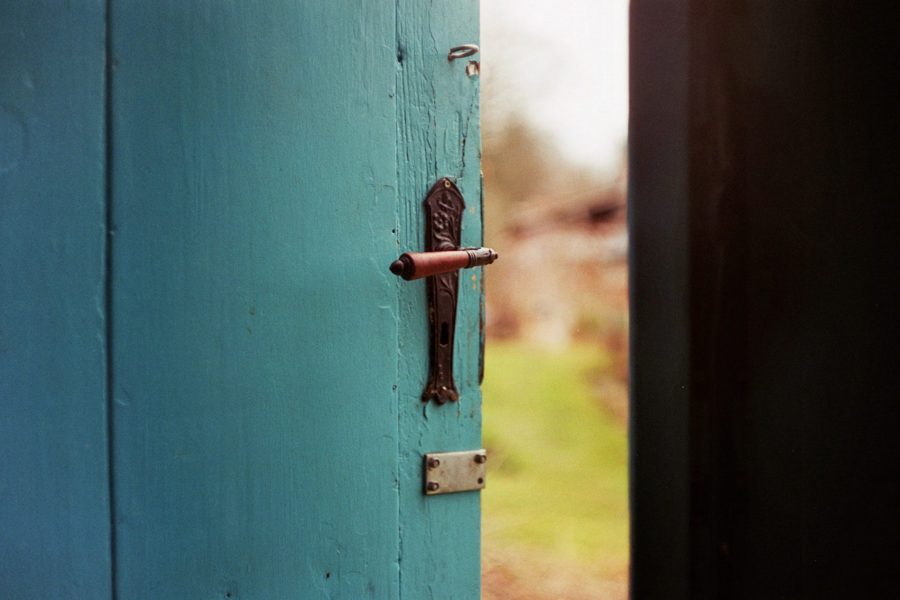An old beggar in Venice, Francisco García, sits on the ground and begs for alms, as he does every day of the year. And, like every day of the year, a pensioner, Luis Spanio, passes by him and gives him 50 centimes. Luis Spanio has a salary of 500 euros, but he still manages to get half a euro a day to give to the beggar.
August arrives and Luis, before going on holiday, takes fifteen euros and gives them to the beggar, with this explanation: “During the whole month we won’t see each other. Here are 15 euros, i.e. 50 cents for each day”.
The beggar hesitates for a moment and then has this reaction: “Thank you. But look, 5 euros is enough for me. The other 10 will go to that campaign they’re doing over there for the refugees in Darfur. They need it more than I do.
I read this news on a collection day for the fight against cancer. A volunteer was passing between the tables of a café, collecting donations for such a noble cause. She was an elderly person, an acquaintance of mine, who lives on a small allowance. I did the firemen’s collection,” she told me, “and now I’m doing this one, from eight in the morning to seven in the evening. I also do the Red Cross, Caritas, Heart and Rheumatism collections. On other days I help a neighbouring couple: I wash their clothes, prepare their meals. They are younger than me, but they look a hundred years old. What is our life worth if not to help the needy?
Grain by grain, coin by coin, these little ants bring a lot of joy and hope to many people. Thanks to them, many charities function and flourish.
In a supermarket I came across one of these bustling flocks of ants, almost all of them young and adolescent: they were volunteers from the Food Bank Against Hunger. It was a pleasure to watch them, with the joyful bustle of a bird, collecting and carrying the plastic bags in which customers dropped off kilos of dough and rice, packets of butter, litres of milk.
And I kept thinking that the encounter with the new world we dream of is not only made of grandiose gestures, but also and above all by taking advantage of small and modest daily occasions.
In fact, I cannot prevent millions of children from dying every day, victims of hunger and malnutrition; but if I prevent the death of at least one of them, a little more life will beat in the world. Half of the women in the Third World suffer from anaemia; a small donation, the fruit of a renunciation of a whim of mine, will perhaps provide one of them with a few drops of vigorous blood. Hundreds of millions of illiterate people populate our planet; perhaps I can help UNICEF buy a pen, a book and a notebook. We know that it is not only by shooting and stabbing that people kill, but also by insult, by coldness, by betrayal; well, I can daily counterbalance all this with small gestures and words of tenderness, solidarity, reconciliation and peace.
And if my example has a multiplier effect, if another flame is lit in my flame, the world will become brighter and more ardent. “If all men and women join hands, they will make a wheel of love around the earth. If all the sailors line up their barges, they will make a bridge over the sea”.
Let no one say they cannot help a blind man cross the street or light up a sad person’s face. Brick by brick, we can build a humanly dignified and sustainable future for all.
And here I am not thinking only of the diligent little ants who are the volunteers of the Fight Against Cancer or the Food Bank. I am thinking of the countless legions of graduates in economics, computer science, law, business management, biology and medicine. These degrees are sometimes no more than diplomas that authorise their holders to earn and consume more and more. Many, however, turn them into real knowledge for action: in addition to investment for their own benefit, they are also breeding grounds for humanising proposals, for lucid and viable alternatives, for solutions to improve human society.
The strongest and most technically prepared contribute to the well-being of the world with their considerable work and creative initiatives. But those who only manage to peel potatoes, or collaborate in a collection – or distribute their alms, like the poor man in Venice – are no less important. In all these cases, it is the same wonder: to give from what one has received? Because, strictly speaking, we are not the owners of anything: we are mere trustees, for our own benefit and for the benefit of those who need it.
Such a life open to others is splendid and happy. Because “there is more joy in giving than in receiving”. Or, as a philosopher says, “The door to happiness opens outwards”. Happiness is found by those who seek to give it to others.
Abílio Pina Ribeiro, cmf
(PHOTO: Jan Tinneberg)






